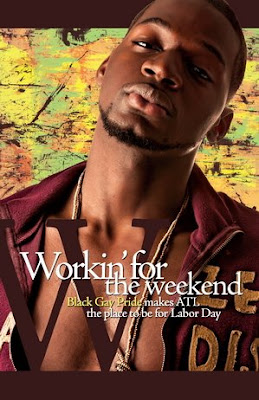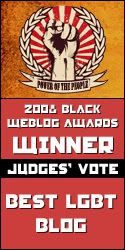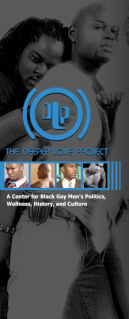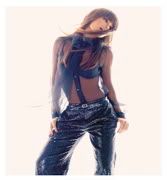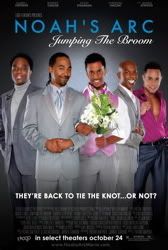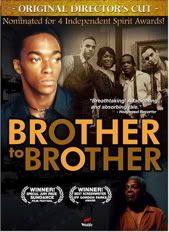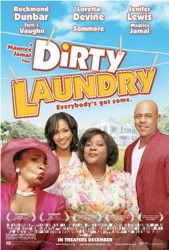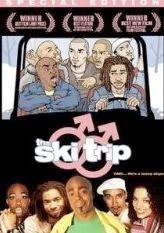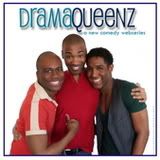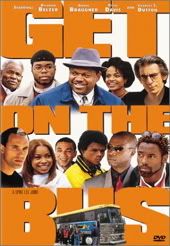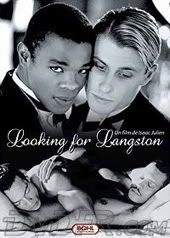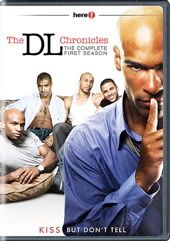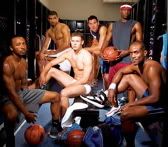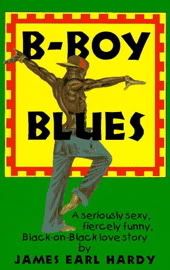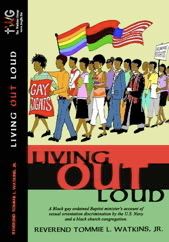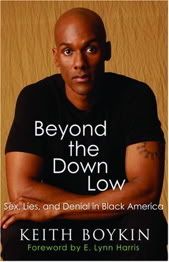
As long as you think of yourself as white, then I’m forced to think of myself as black.
– James Baldwin
One would want to believe that the gay community—compromised of every race, gender, ethnic, political, social and economic group—would be the last place where racism and exclusion would dwell. Recently, a blogger with a multiracial, multiethnic background posited that Black gay bloggers are
responsible for perpetuating division in the gay community. One blogger he mentioned in his article was Darian Aaron, the creator of the incredibly informative, entertaining and crucial blog,
Living Out Loud with Darian.
Anyone who reads Darian’s blog is fully aware that while his blog does focus on the issues that are closest to those in the Black community, he, by no means, excludes the points of view of those outside of the community. While there are a handful of gay bloggers, like
Jasmyne Cannick, who are notoriously unfriendly to outsiders, by and large, this is not the case with most Black gay bloggers.
However, the Black gay point of view has long been excluded from countless gay blogs. Not a single person within the so-called mainstream gay community so much as lifted a finger or a voice to challenge—or to examine—that deeply curious practice. It was viewed as the status quo and as a non-issue. Blacks were in the background, if anywhere at all, and that seemed to be fine with everyone (which is why having a point of view like Cannick’s is somewhat sympathetic; as Chris Rock once said, “I’m not saying I’d do it, but I understand”). So I am forced to wonder why this subject is only problematic now that Black gay bloggers, in response to being excluded, have created their own spaces and have prospered. I am not a religious person by any stretch of the imagination, but when I hear this new criticism of Black gay bloggers, what immediately comes to mind is from the book of Luke, verse 6:41:
But why lookest thou on the mote which is in the eye of thy brother, but perceivest not the beam which is in thine own eye?
What the critics have conveniently ignored is the fact that the gay community—and now I mean the gay community as an organized, visible force wielding whatever social and political power they have to influence the course of things in the country—has presented itself as a largely White and largely (upper) middle-class machine that is interested in, almost exclusively, the issues most pressing to its largely White, largely (upper) middle-class constituency. It has, heretofore, disregarded or dismissed as “fringe” the concerns of those outside of this narrow group.
This is not hyperbole. The gay community has not been a joyous, welcoming place for Black gays. Even the language seeks to exclude. Euphemisms are used to separate and distort (“closeted” means the exact same thing as “down-low,” but “down-low” is invested with all sorts of negative stereotypes and images that should—but do not—apply to “closeted”). Black gays have been
excluded from gay places of business. The gay community has even gone as far as to
mock Blacks in blatantly racist terms and defend the racism as something other than what it is.
So in the midst of this hostility and invisibility, Black gays have felt it necessary to form their own communities, to create centers of friendship, love and healing meant to undo the damage done in the larger gay culture, as well as address the issues that larger culture refuses to even place on the table for discussion.

The critics of this movement charge that Black gay bloggers are, in effect, guilty of the same exclusionary crimes of which the larger gay community is guilty; that the actions of Black gay bloggers only exacerbates the overall problems of racism, classism and segregation in the gay community. I find the critics to be operating on very childlike terms, with very simplistic tools. They ignore what even the blind can see: When one is turned away from shelter, one must find shelter where one can. Certainly, one could be persistent. One could continue knocking at the door and beg for one’s place at the table, but where is the dignity in that—especially when one has the skills to create one’s own table?
Furthermore, critics claim that these Black gay blogs render White gay blogs invisible; remove them from the discourse. What I would like to know is how that is possible—not just as a matter of common sense or philosophy, but as a matter of physics: How can hundreds of Black gay blogs render thousands upon thousands of White gay blogs invisible (particularly when many of the White gay bloggers have a stranglehold on media and resources)?
I do not believe that Whites are not being permitted a voice in the discourse; they are not being rendered invisible or being excluded. Here is what I believe to be the source of the hysteria: All people with power panic when their formerly powerless denizens prove themselves resourceful and embark on a quest of self-determination. It does not matter to the people with power that they have created both the cause and the effect of the revolution. Their goal is simply to quell it by any means necessary because they fear that they might lose something. Privilege—and in this instance I am speaking of White privilege—is an affliction that robs its hosts of both objectivity and a sense of fairness, attributes which are crucial to this discussion.

To tackle the charges themselves, two things strike me as problematic about the grievances being leveled against Black gay bloggers:
First is the idea that there is something inherently wrong, in the sea of blogs that cater specifically and exclusively to the White gay point of view, with having blogs that cater specifically to the Black gay point of view. At the expense of being accused of exaggeration, I must say that the NAACP was created precisely because there was Jim Crow and the KKK. Eliminate Jim Crow and the KKK (and the mindset that imagines such monstrous institutions) and you eliminate the need for an NAACP. The logic does not work the other way around.
Second is the way in which the White gay community chooses, when it deigns, to “include” Blacks. It is not as intellectuals, not as equals, not as brothers and sisters in the struggle. It is as objects meant to satiate curiosity and desire; often, the Black man himself is rendered invisible while his private parts are magnified.
It is not that Black gays are unwilling to be a part of the larger community. It is that the price, as it stands, is way too high for membership. Black gays cannot and will not be a part of the larger community if the cost is the loss of dignity, humanity, and visibility.
And the truth of the matter is that we did not erect this partition. It was the White gay movement that constructed it and refused our calls for entry and unity; that relegated Black gays and Black gay concerns to the most remote edges of the territory. That Blacks have built castles on those edges is only sensible. And if the desire is, now, for Black gays to tear down those castles and join in rebuilding something that everyone, Black and White, can live in, I believe Blacks are generally a forgiving people and would be agreeable to that end. But justice demands that the walls and castles Whites have built should already be torn down and laid to waste (and I do not believe that they are).
Nothing can be built jointly a moment sooner than that.
Robert Jones, Jr. is a writer and creator of the blog,
Son of Baldwin. He is currently working on his first novel, The Book of Samuel. He resides with his partner in Brooklyn, NY.

 2
comments
|
Wednesday, April 29, 2009
2
comments
|
Wednesday, April 29, 2009



















